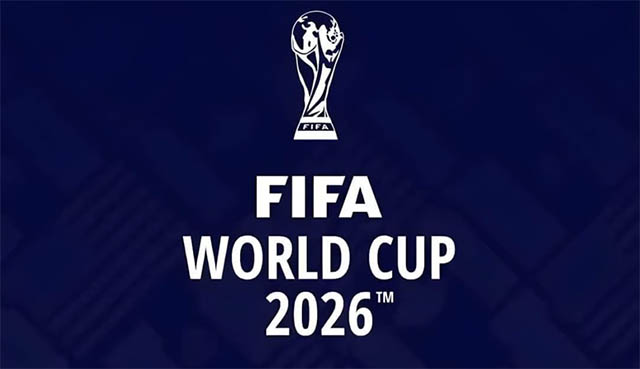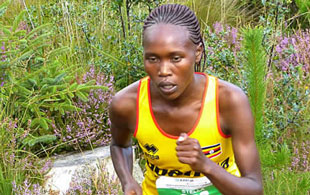“People have an opinion of Africa, and it is not so good, but we have to let sport unite us all.” – Didier Drogba
It’s full of hope, unity, and strength. Africa’s rich history of football will not be forgotten so soon. The 2010 World Cup in South Africa marked a historical moment for Africa. It was the moment when the world saw African pride and culture. It is not that particular tournament but a legacy that compels the teams to prepare for the FIFA World Cup 2026.
South Africa FIFA World Cup 2026 anticipation fuels African teams with ambition. Lessons from 2010 empower African players, Bafana Bafana performance, and supporters worldwide. This blog explores how South Africa influenced African teams for World Cup 2026. It also mesmerizes their historical performances and the significance of the teams in the upcoming World Cup.
South African Football Culture and African Unity
South African football culture is deeply rooted in history, pride, and unity. The 2010 World Cup was first hosted on African soil. This tournament brought African football culture into the global spotlight. Vibrant fan dances, vuvuzelas, and South African football legacy remain unforgettable. This cultural heritage will motivate African teams in the World Cup 2026.
Representing African nations goes beyond national borders for African teams. South Africa’s football legacy fosters pride, motivating teams to perform at their best. Didier Drogba’s words from 2010 continue to inspire: “Let sport unite us all.” This message reinforces African teams’ motivation in the 2026 FIFA World Cup. Teams like Morocco, Senegal, Ghana, and Nigeria represent Africa’s unity and strength.
South Africa’s “ubuntu” philosophy—meaning “I am because we are”—guides the African football spirit. This shared philosophy unites African players and fans across the continent. As African teams prepare for the 2026 World Cup, ubuntu will define their journey.
A Legacy of Resilience and Pride
The 2010 World Cup transformed perceptions of African teams and African football history. South Africa’s hosting proved that Africa could deliver a world-class event. African fans and players held immense pride in this accomplishment. The 2010 World Cup legacy has inspired future generations of African players. For young players, South Africa’s legacy represents potential and possibility.
Moroccan star Youssef En-Nesyri recalls South Africa’s influence from 2010. Watching South Africa’s World Cup as a boy, he realized Africa’s power. Now, as a top African player, En-Nesyri honors that inspiration. He is determined to carry South Africa’s football legacy into the 2026 World Cup. South Africa’s impact reaches each African player, fostering ambition and pride.
African football teams now gain visibility and respect, matching their skill. South Africa’s influence on the World Cup created a pathway for African growth. South African football’s influence on culture, marked by resilience, fuels African teams’ confidence. As 2026 nears, African teams look forward to drawing on this proud history.
Key Moments in African Football History
African teams have reached several key milestones in World Cup history. Each success builds on South Africa’s football legacy and continental influence. Cameroon’s Roger Milla led his team to a historic quarterfinal in 1990.
Senegal shocked the football world into an astonished silence when it advanced to the quarterfinals in 2022. These moments reflect African teams’ growing strength, skill, and resilience. South Africa’s 2010 World Cup inspired African players and teams to aim higher. Today, African teams possess resources and support to achieve greater success.
Teams to Watch in the 2026 World Cup
As the 2026 World Cup approaches, African teams prepare to make history. South Africa’s football legacy and influence inspire African teams from training to matchday. Here are key African football teams to watch with talent, skill, and ambition:
Morocco
Morocco amazed the world by reaching the semifinals in 2022. Their disciplined defense and tactical skill make them top 2026 contenders. Stars like Achraf Hakimi and Youssef En-Nesyri lead Morocco’s World Cup quest. Morocco exemplifies the tactical focus of South Africa’s football culture.
Coach Walid Regragui instills unity, discipline, and adaptability in Morocco’s squad. Morocco’s journey reflects South Africa’s World Cup legacy influence. Morocco’s passionate fans embody the spirit of African football.
Senegal
The best African team, Senegal, is full of talent, skill, and strong ambition. Sadio Mané and Kalidou Koulibaly are two stars that make Senegal an incredible powerhouse. Their game plays out at a great pace and is full of skill and discipline, just like the South African football culture.
Senegal’s Africa Cup of Nations achievements reveal their immense potential. African football history records Senegal’s 2002 World Cup success. Now, in 2026, they aim to honor South Africa’s legacy and excel.
Ghana
Ghana’s Black Stars are known for their energy, flexibility, and enthusiasm. A new generation is emerging with stars like Mohammed Kudus at the helm. Ghana’s dynamism in style has roots in South Africa’s World Cup heritage. Their teamwork, pace, and skill make them a strong contender for the 2026 World Cup.
South African soil saw Ghana’s nearly semi-final finish in 2010. Fans from that land take pride in unifying Africans worldwide. African football, influenced by the 2010 World Cup, would find determination in South Africa.
Nigeria
Nigeria is a powerhouse known for its fearless, high-paced playing style. Stars like Victor Osimhen add scoring prowess and technical skill to Nigeria’s attack. Nigeria’s creative, fast-paced play highlights African football culture. The South African football legacy inspires Nigeria’s unique combination of skill and power.
Nigeria’s passionate fans bring unmatched energy to every game. Nigerian players and fans honor South Africa’s legacy of resilience and pride. Nigeria’s influence in the 2026 World Cup will resonate across Africa.
Best African Players to Watch in FIFA World Cup 2026
With FIFA World Cup 2026 knocking at the door, African teams are going to provide some on-field fights all over the globe. These players reflect the spirit of their countries and carry the hopes of millions. Their performances will captivate fans and influence sporting bets as the tournament unfolds. Here are the best African players to watch in the upcoming World Cup:
- Achraf Hakimi (Morocco): Hakimi has a lot to offer for Morocco with the role of strong full-back player.
- Riyad Mahrez (Algeria): No defense can stop Mahrez, a proven player on the big stage, with his dribbling skills and creativity.
- Sadio Mané (Senegal): He is quick and a goal-scorer. His leadership will guide Senegal.
South Africa’s Role in African Football Development
South Africa invests heavily in youth programs and facilities, impacting African football. South African football legacy establishes high standards for African teams’ growth and development. Programs like the SAFA Development Agency foster talent from a young age. These initiatives support African football’s growth, reflecting South Africa’s World Cup legacy influence.
South African youth academies and programs produce key African players for World Cup 2026 with world-class training. South Africa’s influence on African teams’ development is evident in their skills. African football teams in 2026 have strong infrastructure and advanced facilities. South African football legacy shows the impact of youth investment.
Other African nations now have youth academies and competitive domestic leagues. South Africa’s influence inspired these improvements, raising African football’s quality. Football development in South Africa invests in players’ futures, boosting African competitiveness. African football gains international respect and recognition in global tournaments.
The 2010 World Cup Legacy and its Global Significance
South Africa’s 2010 World Cup remains a landmark in African football history. The tournament showcased African football’s potential to capture global attention. This powerful moment displayed Africa’s pride, skill, and vibrant spirit. The impact of South Africa on the World Cup expanded African teams’ visibility and respect.
Since 2010, African players have joined top leagues worldwide, strengthening African football. South Africa’s football legacy reshapes global perceptions of African talent. This journey, from the 2010 World Cup to 2026, brings out the tremendous growth Africa has produced. The legacy of the World Cup in South Africa empowers the teams more by breaking down barriers.
The 2010 World Cup introduced a new view of African football. African players are now key contributors to top international clubs. South Africa’s influence in the World Cup helped redefine African football’s role. South African football legacy inspires players and fans, showcasing Africa’s potential.
African Unity and Pride in the 2026 World Cup
African teams at the 2026 World Cup carry a mission of unity and pride. South Africa’s World Cup legacy inspires African players’ sense of unity and purpose. This mission transcends national pride, embracing Africa’s collective identity. African fans stand united, holding together passion, heritage, and history.
The 2026 World Cup is a new history about to be written for the African teams. South Africa’s legacy instills confidence and pride in African players worldwide. African teams carry the hopes of a continent guided by the South African football legacy.
African fans honor South Africa’s achievements at every match. The 2026 World Cup showcases African unity, resilience, and pride on a global stage. African teams bring South Africa’s resilience, optimism, and history as they reach for greatness.
The Future is Bright for African Football
South Africa’s influence on the FIFA World Cup 2026 teams is unmistakable. The South African football legacy of resilience, pride, and unity fuels African teams. From Morocco to Nigeria, FIFA World Cup 2026 teams enter the tournament with a purpose. African football culture, rooted in unity, reflects South Africa’s enduring impact.
The 2026 World Cup will showcase the rise of African football in World Cup history. South Africa’s impact on African teams symbolizes Africa’s power to inspire globally. South Africa’s legacy endures as African teams unite for the 2026 World Cup. World Cup predictions for 2026 indicate strong performances from these inspired teams.
 The Independent Uganda: You get the Truth we Pay the Price
The Independent Uganda: You get the Truth we Pay the Price


